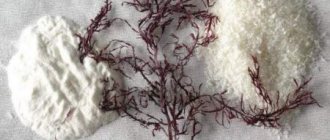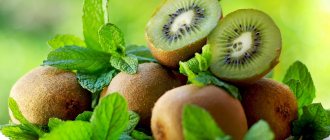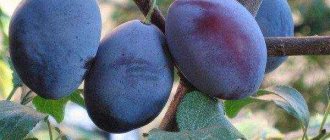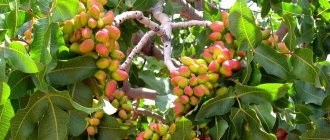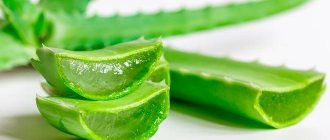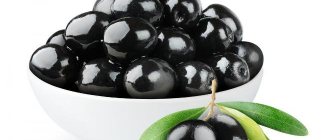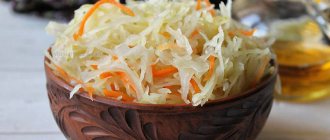The exotic fruit mango has an incredible aroma and excellent taste. The fruit is native to Southeast Asia. In the countries of this part of the continent, they believe that mangoes give good luck and bring prosperity. Hindus believe that the fruit helps in contraception and is a real aphrodisiac. But the most important thing that is known about mangoes is that they are a real storehouse of vitamins and nutrients for the human body. There are two varieties of the fruit: growing in the Philippines, in Southeast Asia, and in India. The first type has a pale green color, the second is bright yellow, sometimes with a reddish tint.
Mango trees bear fruit well for about 40 years. More than 1 thousand fruits can be collected per year.
| Calories per 100 g, (kcal): | 67 |
| Protein per 100 g, (g): | 0.5 |
| Fat per 100 g, (g): | 0.3 |
| Carbohydrates per 100 g, (g): | 11.5 |
| Glycemic index: | 55 |
Beneficial properties of mango
First of all, mango helps strengthen the immune system.
It is beta-carotene, vitamin C and A that help activate the immune system and protect the body from the effects of free radicals constantly entering the body. Mango fruits can reduce the risk of developing malignant tumors. Fisetin, quercetin and other compounds contained in mango contribute to this. It has been scientifically proven that regular intake of only the above two substances into the body can prevent the development of cancer and leukemia.
Due to its high content of vitamin B6, mango stimulates brain function. This vitamin is involved in the formation of substances that are responsible for mood and quality sleep. Glutamine contained in fruits improves memory. Allows a person to concentrate as much as possible in any difficult situation.
The liver is an organ that needs regular protection. It is mango that allows you to protect this organ as thoroughly as possible, due to its rich range of antioxidants.
Mango allows you to optimize the fluid balance of the skin. Thanks to the consumption of this fruit, a person can get rid of acne and prevent its occurrence. The fruit helps not only when consumed internally, but also if you make face masks from it.
Regular consumption of fruit can reduce the level of “bad” cholesterol in the body. And potassium, which is contained in mangoes, has a positive effect on the functioning of the heart and vascular system.
A large amount of fiber stimulates and normalizes the functioning of the digestive tract. For the body to receive 20% of the required daily dose of fiber, only 1 fruit per day is enough.
Vitamin A contained in fruits improves visual acuity and helps maintain eyes throughout life. In combination with eating carrots and berries, you can achieve real results in the shortest possible time.
Mango is a natural source of calcium and iron, which can help prevent the development of anemia.
And of course - mango is very useful for people who control their weight. To improve the effectiveness of the weight loss process, it is recommended to consume the fruits with the peel.
An interesting fact is that mango, unlike most fruits, is not contraindicated for consumption if you have diabetes. Although you will have to comply with the permissible dose per day, and it cannot exceed 150 g. You can eat fruits only 3 hours after the main meal. You can drink natural fruit juice, but not more than 100 g throughout the day.
Mango fruit: benefits and harms
No wonder the ancient Hindus considered mangoes a source of vitality. It will give anyone cheerfulness and a good mood. Contains dozens of nutrients.
The sweet pulp protects against infections, relieves pain, and reduces fever without medications.
Chemical composition
The calorie content of a 100-gram serving is 60 kcal. The nutritional value analysis is presented in the table.
| Name | Quantity, g | % Daily Value |
| Squirrels | 0,82 | 1,1 |
| Fats | 0,38 | 0,7 |
| Carbohydrates | 13,38 | 6,1 |
| Alimentary fiber | 1,6 | 8 |
Among the vitamins, ascorbic acid is the leader. One hundred grams will provide 40% of the daily requirement. This is an order of magnitude greater than in grenades.
Next in the ranking is beta-carotene (12.8%). The fruits have a high content of vitamins B and E. In green fruits, ascorbic acid predominates, and in ripe ones, vitamin A predominates.
The most common minerals are potassium (6.7%) and copper (11.1%). Slightly less calcium, magnesium, phosphorus. Fruits are rich in sugars and amino acids. Among them are 10 irreplaceable. They are not synthesized in the human body and must be supplied with food.
The pulp contains phenolic compounds, polyphenols: mangiferin, kaempferol, quercetin, cahetins.
Benefits of mango
The healing power of the plant has been used in traditional medicine in Asian countries for centuries. All parts are suitable for treatment, including bark, leaves, flowers, roots.
From time immemorial, oriental healers have used mangoes to treat cholera, dysentery and other infectious diseases. The juice is a known laxative and strong diuretic. It cleanses of toxins and removes “bad” cholesterol.
Scientists from Oklahoma have found that regular addition to the diet regulates blood sugar levels.
The presence of magnesium and potassium makes the product valuable for those who suffer from hypertension.
Mango is good for maintaining brain health. It contains pyridoxine. The compound improves memory, reduces anxiety, and relieves depression.
Glutamine prevents irritable bowel syndrome. According to some studies, kaempferol protects against cancer. True, in terms of its content, mango is inferior to other sources - ginger, green tea, broccoli.
How is mango beneficial for a woman’s body?
The fruit is rich in folic acid, iron, copper. These are the most important substances for a favorable pregnancy and the prevention of anemia.
Mango is a great snack for those who want to lose weight. It quenches hunger and thirst well, refreshes the complexion, and has a beneficial effect on the epidermis.
Fruits bring relief from menstrual pain and cycle disorders. They contain many active substances that slow down the signs of aging.
Tocopherol and retinol are natural sources of beauty and youth. The pulp contains a huge amount of ascorbic acid, a powerful antioxidant. Fruits are rich in vitamin A. It is often used to combat wrinkles.
Ascorbic acid not only relieves oxidative stress, but also increases collagen production. Protein slows down aging, maintains skin elasticity, and reduces joint pain.
Ripe berries are an ideal raw material for homemade cosmetics. They help you gain healthy hair and get rid of yellow nails.
Here is the recipe for the mask, I tried it on myself:
- Mash the slice with a fork.
- Add a teaspoon of sesame oil.
- Stir.
- Apply an even layer to the face, avoiding the area around the eyes.
- After 15 minutes, wash off.
The effect is noticeable immediately. The face was noticeably refreshed, the color became more even.
Don't forget to test the mass on your hand. Apply to the face only if there is a negative reaction (no changes in the skin).
What are the benefits of mango for men?
Pectin fibers naturally remove excess cholesterol. Combined with potassium and magnesium, they help maintain heart health.
Mango prevents diseases associated with the reproductive sphere and pelvic organs. It is eaten to prevent prostatitis and cancer.
Traditional Indian medicine classifies mango as a product that increases “male strength.”
It contains glutamine, which reduces pain after intense workouts.
Benefits of mango for women
First of all, mango is beneficial for the female body, as it increases the level of hemoglobin in the blood. This is very important during menstruation and pregnancy. It is mango that provides the optimal amount of iron to the body, which is lost in large quantities during the menstrual cycle.
To support a woman's figure in optimal volumes, mango is the best choice. During fasting days, the fruit will cheer you up and give you energy, making it much easier to follow any diet. The main thing is to follow the recommended dose, since this fruit still has a high calorie content and contains a large amount of fructose.
Due to the large amount of antioxidants, regular consumption of mango fruits has a positive effect on the condition of hair and skin.
During pregnancy, the fruit helps reduce the manifestations of toxicosis. Allows you to improve the general psycho-emotional state of a woman and normalize the activity of the nervous system. In addition, mango relieves constipation and swelling due to its ability to remove excess water from the body.
Composition, calorie content and BZHU
100 grams of fresh mango contains 60 kilocalories. The nutritional value of the fruit is as follows:
- proteins - 0.8 g;
- fats - 0.4 g;
- carbohydrates - 15 g.
One medium mango fruit weighs 300 g, the number of calories in it is 180 kcal. Number of BZHU:
- proteins - 2.5 g;
- fats - 1.1 g;
- carbohydrates - 44.9 g.
The calorie content of 100 grams of dried fruit is 314 kcal. Number of BZHU:
- proteins - 1.5 g;
- fats - 0.8 g;
- carbohydrates - 81.6 g.
Mango contains the following vitamins:
- ascorbic acid;
- a nicotinic acid;
- B vitamins (pantothenic acid, choline, pyridoxine, thiamine, riboflavin, folate);
- phylloquinone;
- alpha and beta carotene;
- tocopherol
The largest amount of vitamin C is contained in the pulp (175 mg of ascorbic acid per 100 grams).
Substances beneficial to the human body include amino acids (glycine, glutamic, aspartic acid, isoleucine, leucine, lysine, arginine), which are also present in this fruit. The chemical composition of the fruit includes starch and sugar.
Mango contains the following minerals:
- selenium;
- calcium;
- iron;
- potassium;
- copper;
- magnesium;
- zinc;
- phosphorus;
- manganese.
The peel and leaves contain polyphenol. Mangosteen, extracted from the seeds, has antipyretic properties.
Benefits of mango for men
The fruit has no less benefits for the male body. The fruit is an ideal product in preventive measures to prevent problems in the sexual sphere. It is this fruit that helps prevent the development of tumors in the prostate gland and protect the male body from other genitourinary diseases.
A rich variety of minerals, a large amount of beta-carotene and vitamin E can improve reproductive function and have a positive effect on sperm quality. With regular consumption of mango, men note that their potency improves and sexual activity increases.
In addition, mango increases the body’s energy reserves, that is, a person becomes more resilient and improves performance.
Mango - benefits for the body
Before peeling mangoes and enjoying them at home, let's study the effects of the fruit on the human body.
No. 1. Strengthens immunity
The fruit is considered the record holder for the accumulation of ascorbic acid. Vitamin C acts as an immunomodulator and antioxidant. These qualities are necessary for people who have been sick a lot since childhood. To increase your defenses, you should eat mangoes when moving, changing seasons, during vacations and during flu epidemics.
No. 2. Normalizes the psycho-emotional background
The nervous system of modern man is under attack every hour, but not everyone attaches great importance to this. To overcome emotional fatigue, irritability and sudden mood swings, you need to introduce fruit into your menu. The valuable composition will prevent depression and apathy, since it contains a lot of B vitamins.
No. 3. Expels liquid
Mango removes excess fluid from tissues, so special attention is paid to the benefits and harms. This quality is very important for the body. As a result, the kidneys and bladder are cleansed, urolithiasis is prevented, and swelling goes away. People with heavy leg syndrome should definitely eat tropical fruit. Due to the removal of fluid, comfortable weight loss occurs.
No. 4. Cleanses the intestines
The fruit contains a decent amount of dietary fiber, which acts like a panicle. They gently move along the walls, cleaning and removing decay products. Mango is also famous for its laxative effect, so it is eaten for constipation. The tropical fruit is able to normalize the intestinal microflora and overcome slagging in a short time.
No. 5. Removes toxins
Elements with antioxidant properties included in mangoes are aimed at cleansing the blood of toxic substances and poisons of other nature. They rid the body of salts, toxins, and radionuclides. Against this background, absolutely all metabolic processes intensify, internal organs begin to work harmoniously, and blood composition improves.
No. 6. Improves vision
Mango is considered the record holder for the amount of beta-carotene in its composition. Everyone is well aware of the benefits and harms of this substance for the body. If you are not allergic to the fruit, taking it will count as a plus. Beta-carotene protects the optic nerves, enhances the natural lubrication of the eye socket, and also strengthens muscles. Experts advise leaning on fruits if you are prone to cataracts.
No. 7. Protects the cardiovascular system
The fruit is rich in potassium, magnesium and other minerals necessary for the blood channels and heart muscle. The active composition breaks down and removes cholesterol plaques, improves blood quality, and prevents varicose veins and atherosclerosis. Mango increases hemoglobin and solves problems arising from iron deficiency.
Harm and contraindications of mango
Like any other natural or natural product, mango has some contraindications for consumption.
It is not recommended to consume mango with alcoholic beverages. Most of the beneficial nutrients, including vitamins, will disappear and speed up the process of converting carbohydrates into fats.
Unripe fruits, by the way, which we most often see on the shelves of our stores, can cause diarrhea and will irritate the gastric mucosa, which will negatively affect the general condition of a person.
Under no circumstances should you eat fruit in large quantities if you have a history of gastritis. Mango causes aggravation due to the presence of fatty acids.
Acute and chronic forms of pancreatitis are also a contraindication for eating mango.
Naturally, if you have an allergic reaction to mango fruit, it is unacceptable to eat it. Even if there is no individual intolerance to the fruit, you should not eat too many mango fruits, they can cause gastrointestinal upset and have a negative effect on the intestinal mucosa, especially if they are not ripe.
Harm of mango
The fruit contains many organic compounds, which can trigger the body's immune response. In this case, a persistent allergic reaction develops, which is accompanied by itching of the skin, redness, and shortness of breath. The fruit can cause considerable harm if you overeat it. You should not overuse the product - it is enough to consume mango once a day.
You should not eat unripe fruit. This will inevitably lead to digestive disorders. If the product is eaten not fully ripe, diarrhea, dyspepsia, belching, bloating or constipation develops. All these symptoms indicate the unpreparedness of the gastric mucosa to accept and digest unripe fruit pulp.
During pregnancy, it is important to be especially careful when eating fruit. Excessive consumption of pulp is contraindicated for the expectant mother. Otherwise, a defect in the cardiovascular system of the unborn child may develop. This risk is present due to the large amount of vitamins C and A in mangoes. Excessive amounts of these substances in the body are unacceptable for an expectant mother.
Dried fruits cause less harm to the body. However, do not forget with this interpretation that dried mangoes lose almost all their beneficial qualities. Candied fruits are tasty, but do not have any health value. The fruits are boiled in sugar syrup, but with prolonged heat treatment all their beneficial properties are lost.
It is advisable to consume the exotic product fresh and ripe. The exotic fruit is thoroughly washed and the skin is removed. Mango is a natural elixir of youth for every person. The round or oval orange fruit is a storehouse of vitamins and minerals.
How to choose a ripe mango
You cannot choose a mango based solely on color. The color of the fruit depends entirely on the variety and place of growth. Therefore, you should not be surprised that there are fruits of brown, green or orange on the shelves nearby. Although there is a trick here too. It is better to choose a brighter shade, this indicates that the fruit is fully ripe. The peel of the fruit should not have mechanical damage and have a matte, bright surface.
If you notice that the fruit has dark spots, even small ones, it means it is already overripe. You should not take fruits that have flabby skin. This means that they have been on display or in a warehouse for too long; in other words, they have withered. Severe roughness and wrinkling of the peel indicates that the fruit was picked while still unripe.
Be sure to smell the fruit, it should have an exotic smell with pleasant fruity notes, the smell should “invite” you to taste it. The absence of odor indicates that it is unripe or overripe. If there are notes of alcohol tincture or a sour smell, the fruit has already deteriorated.
If the fruit is in good condition, then when you press on it, like meat, it will quickly restore its structure. If a fingerprint remains, then, alas, the fruit is overripe.
Be sure to pay attention to the label. It is clear that it is very difficult to bring and preserve fruits from another continent. But the fewer pesticides there are, the better.
If you buy an unripe fruit, do not be upset; it can be brought to the desired ripeness at home. The fruit is placed in a paper bag, most importantly not in plastic, and placed anywhere at room temperature. In just a few days the fruit will be ready for consumption. To speed up the ripening process, you can place a banana or apple in a bag of mangoes, which will release ethylene gas, which speeds up the ripening process.
How to choose and eat mango correctly
avtor goplaces
The ripe fruit is a little soft, leaves a small dent, but does not press under the fingers.
A pleasant pine aroma emanates from the peel; there may be small brown dots on the surface. If there is no smell at all and the fruit is too elastic, it means it is unripe. Place the mango on the windowsill and it will ripen in a couple of days.
Avoid choosing fruits with wrinkled skin. They may be old.
If your fingers pierce the skin and the pulp is squeezed out, it means the mango is overripe and begins to spoil.
Due to the sugars, the pulp inside begins to ferment and emits a sour, slightly alcoholic odor. Such fruits will no longer ripen.
The question of how to eat mangoes at home often arises after purchase.
Before eating, mangoes can be peeled in advance, or done later. Before cutting the fruit lengthwise, remove the leaves and stem. Rinse the fruit with water; if it is heavily soiled, use a brush.
Wipe the fruit dry so it will not slip in your hands. Remove the skin with a knife or vegetable peeler.
Make a deep cut near the tail - the knife should stick into the bone. Take him all the way to the bottom. You can cut along the side lines - stripes appear on some varieties.
After cutting through the fruit on both sides, try to separate the two halves. If the fruit is ripe, one part of the pulp will easily “move away” from the seed. All that remains is to pick it off with a knife.
It is more convenient to eat the loose pulp with a spoon.
The pulp can be cut into cubes directly on the peel, then lightly press on the outside and turn the mango outward - the cubes will open like a fan.
Can mangoes be harmful?
avtor-toodlingstudio
Allergies occur due to the fact that the peel may contain large amounts of urushiol (toxic substances). Once on the skin of the hands, urushiol provokes the development of hives, the skin itches and turns red.
The damage to mangoes is mainly due to the inedible skin. If toxic substances enter the mouth due to careless cutting, the lips may become swollen.
Citric acid in the fruit increases the production of gastric juice. When overeating, the functioning of the gastrointestinal tract is disrupted.
Contraindications: stomach ulcer.
How to properly peel a mango
In most cases, if the texture of the fruit allows, it is peeled like an ordinary potato. After that, the seeds are removed and the fruit is cut into pieces of the required size. It doesn’t matter at all whether it’s cubes or slices, the value of the product does not decrease because of it.
The fruit can be cut into two halves, first washed well under water, and the pulp, without cutting off the peel, is divided into cubes.
But the most delicious and pleasant way to clean the fruit is the folk one. After washing the fruit, bite into the indentation where the fruit is attached and pull the peel down with your teeth, and then simply eat or cut it. This method is the most pleasant, because while a person cleans the fruit, he absorbs the juice of the fruit, which is very healthy and pleasant to the taste.
How to choose the most delicious fruit?
Sometimes people complain that mangoes are too sour, tug on the tongue, or taste like alcohol. This happens if you buy an unripe or overripe fruit in a store or make a mistake with the choice of variety.
Determining freshness
The freshness of a mango cannot be determined by its color, since there are about 300 varieties of this fruit in the world. Take the fruit in your hands and try to catch what it smells like.
- Fresh mango has a light fruity scent.
- A complete absence of odor is a sign of unripeness.
- An acid-alcohol trail indicates that the fruit is overripe.
We recommend: Eat as much as you want: how to make homemade chips in the microwave?
Inspect the peel. In a good fruit, it is smooth, glossy, and has no scratches or dents. Squeeze the mango between your palms. The fruit should be moderately firm and elastic.
Brief description of the best varieties
When buying mangoes in the supermarket, pay attention to the price tag or packaging. There is often information about the country of origin, and sometimes about the variety.
What types of mangoes are the most delicious?
- Alphonso, India. You can buy it only in late spring - early summer. The fruits weigh 150-300 g, have an even oval shape and are orange in color with a red side. Hard to the touch. The pulp is golden, almost without fibers. Very juicy and literally melts in your mouth. Expensive variety.
- Dasheri, India. It has an elongated oval shape and yellow-green color, and has a strong smell. The fruit tastes sweet with a slight sourness and a honey trail.
- Kesar, India. Medium sized yellow mangoes. The appearance is nondescript: the fruits have an irregular oval shape and dark spots. The pulp has a strong smell and tastes sweet and sour.
- Chausa, India or Pakistan. Outwardly they resemble the fruits of the Kesar variety, only larger. The pulp has little fiber. The taste contains notes of honey and berries.
- Mahachanok, Thailand. An oblong light green mango with red spots and thick skin. The pulp is sweet and juicy, but the fibers are noticeable.
- Pimsin, Thailand. The mango looks unripe - green, with pink or red spots. Irregular oval shape. However, the taste is pleasant - moderately sweet, with notes of melon and pineapple.
